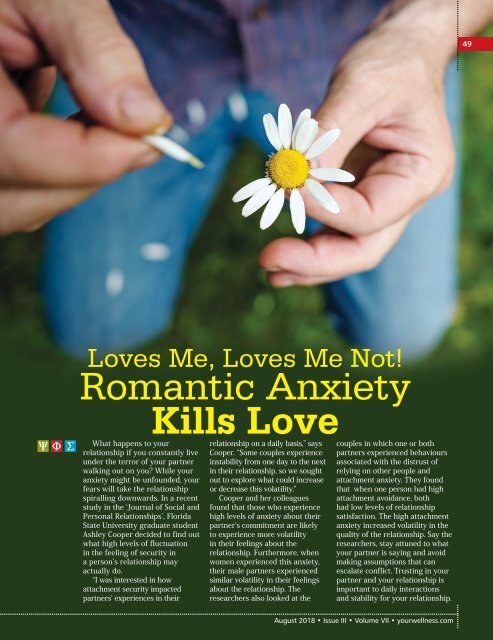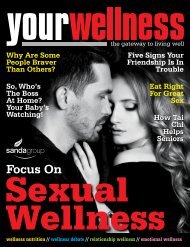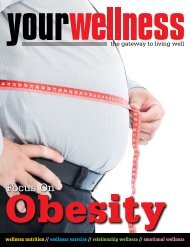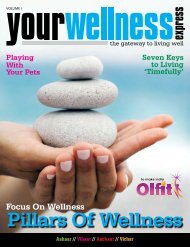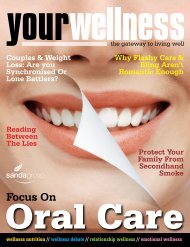Create successful ePaper yourself
Turn your PDF publications into a flip-book with our unique Google optimized e-Paper software.
49<br />
Loves Me, Loves Me Not!<br />
Romantic Anxiety<br />
Kills Love<br />
What happens to your<br />
relationship if you constantly live<br />
under the terror of your partner<br />
walking out on you? While your<br />
anxiety might be unfounded, your<br />
fears will take the relationship<br />
spiralling downwards. In a recent<br />
study in the ‘Journal of Social and<br />
Personal Relationships’, Florida<br />
State University graduate student<br />
Ashley Cooper decided to find out<br />
what high levels of fluctuation<br />
in the feeling of security in<br />
a person’s relationship may<br />
actually do.<br />
“I was interested in how<br />
attachment security impacted<br />
partners' experiences in their<br />
relationship on a daily basis,” says<br />
Cooper. “Some couples experience<br />
instability from one day to the next<br />
in their relationship, so we sought<br />
out to explore what could increase<br />
or decrease this volatility.”<br />
Cooper and her colleagues<br />
found that those who experience<br />
high levels of anxiety about their<br />
partner's commitment are likely<br />
to experience more volatility<br />
in their feelings about the<br />
relationship. Furthermore, when<br />
women experienced this anxiety,<br />
their male partners experienced<br />
similar volatility in their feelings<br />
about the relationship. The<br />
researchers also looked at the<br />
couples in which one or both<br />
partners experienced behaviours<br />
associated with the distrust of<br />
relying on other people and<br />
attachment anxiety. They found<br />
that when one person had high<br />
attachment avoidance, both<br />
had low levels of relationship<br />
satisfaction. The high attachment<br />
anxiety increased volatility in the<br />
quality of the relationship. Say the<br />
researchers, stay attuned to what<br />
your partner is saying and avoid<br />
making assumptions that can<br />
escalate conflict. Trusting in your<br />
partner and your relationship is<br />
important to daily interactions<br />
and stability for your relationship.<br />
<strong>August</strong> <strong>2018</strong> • Issue III • Volume VII • yourwellness.com


